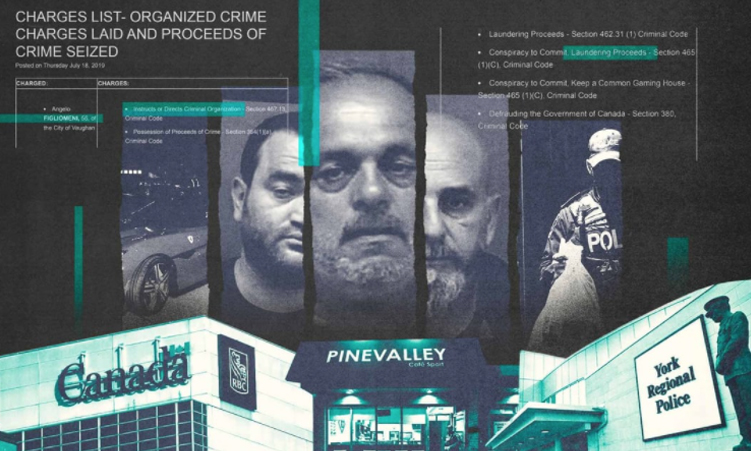A faction of the ’Ndrangheta based in Toronto allegedly relied on relationships with staff at two major Canadian banks to facilitate their financial activities.
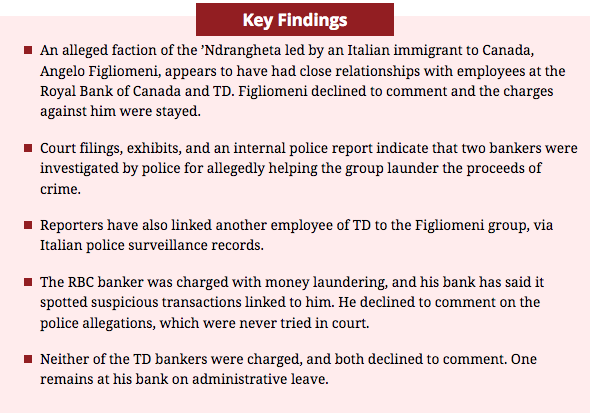
Angelo Figliomeni wanted answers. The alleged mob boss had sent an associate to make a deposit into his account at the Royal Bank of Canada, but there was less cash than expected.
He got on the line with his “client care manager” at the bank branch, Nicola “Nick” Martino — who police alleged also happened to be a member of his organized crime group.
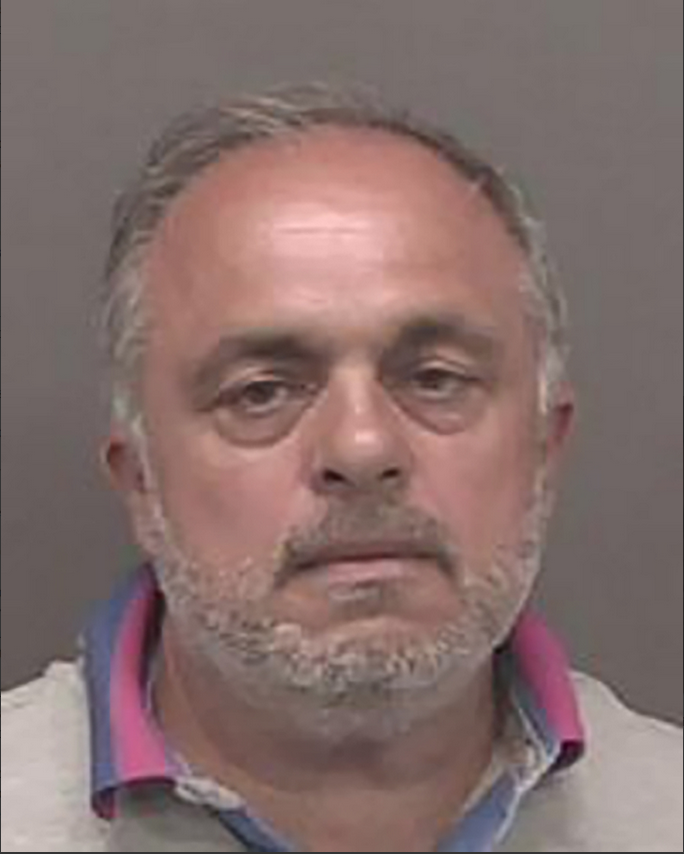
“Thirteen thousand, three hundred, tell me why?” Figliomeni asked Martino.
“Three days short, ‘cause it was February checks,” the banker replied.
“Always an excuse!” Figliomeni barked at Martino.
Little did they know, police were listening in.
Police suspected the deposits were part of a steady flow of “pay up” funds –– payments from members of the alleged criminal group to their boss. The money was deposited into Figliomeni’s accounts at RBC by associates who police alleged were involved in a mafia money laundering scheme, court records show. Martino was investigated by police for helping the funds flow into seemingly legitimate accounts, but charges against him were not brought to trial.
The Italian-born Figliomeni is the suspected leader of a powerful Toronto-based faction of the ’Ndrangheta –– a violent and secretive organization with tentacles stretching across the globe from its base in southern Italy.
His day job, according to police, is selling panini and delivering baked goods through businesses he owns in Vaughan, a city in the Greater Toronto Area. But in 2017, York Regional Police in Ontario launched a sprawling organized crime investigation targeting Figliomeni and his associates.
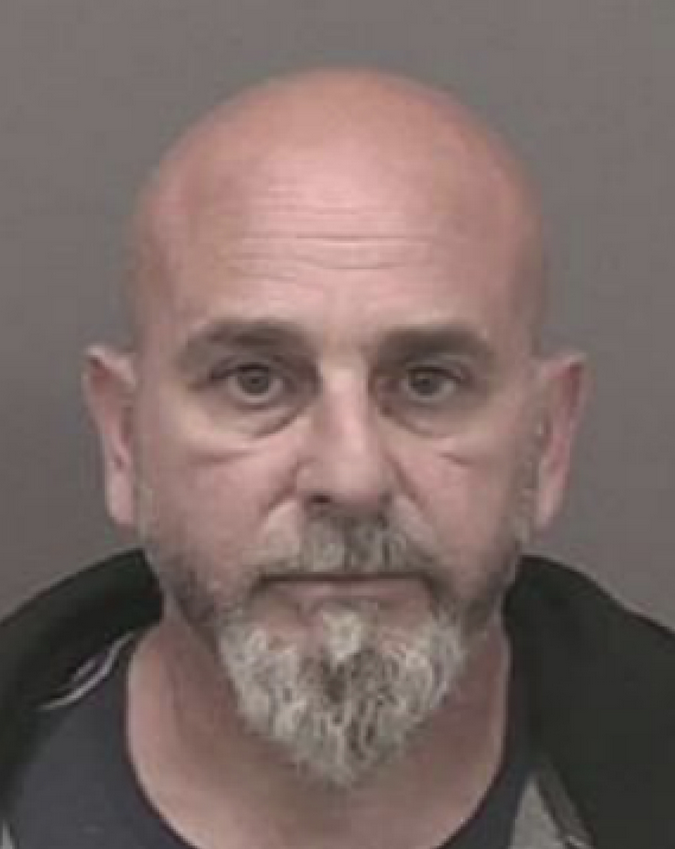
Police dubbed the investigation Project Sindacato, and later called it “the biggest mafia takedown” in their history. But all charges against Figliomeni, Martino and other suspects were eventually stayed, police said. Prosecutors decided not to proceed after it was shown that police had listened to calls between defendants and their lawyers.
The decision forced authorities to return more than CAN$35 million (US$27 million) worth of assets, police said. It also meant the details of the group’s alleged abuse of Canadian financial institutions were never made public in court.
Now, a joint investigation from OCCRP, The Toronto Star, and Italy’s la Repubblica newspaper reveals how two major Canadian banks were allegedly infiltrated by Figliomeni and his associates.
Reporters obtained court records from Project Sindacato, and spoke with law enforcement and banking sources close to the investigation. They also scoured court documents from Italy, where police worked on a parallel investigation in collaboration with their Canadian counterparts.
In addition to Martino at RBC, reporters uncovered evidence that Figliomeni’s associates had contact with two TD Bank employees. Police alleged that one of the TD employees was “fully aware of the money laundering endeavors” of the Figliomeni group. Neither of them were charged.
Through his lawyer Martino declined to comment. Michael Lacy, a lawyer for Figliomeni, said: “Our client is neither participating nor commenting on your inquiries. You should draw nothing from his decision in that regard.”
In a joint motion during the case, lawyers for the defendants argued that police had “investigative tunnel vision,” mischaracterizing “mundane and innocuous actions as sinister criminal meetings” to match their preconceived notion that the accused were mobsters. As part of the investigation, police abused the use of wiretaps and conducted “significant invasions of privacy,” violating the rights of the accused, the lawyers alleged.
In court filings, Figliomeni’s lawyers described their client’s phone conversations with Martino as regular interactions between a legitimate businessman and his banker. Martino’s lawyers said in their legal filings that police had overstated Martino’s role and authority at RBC, and misrepresented communications he had with Figliomeni.
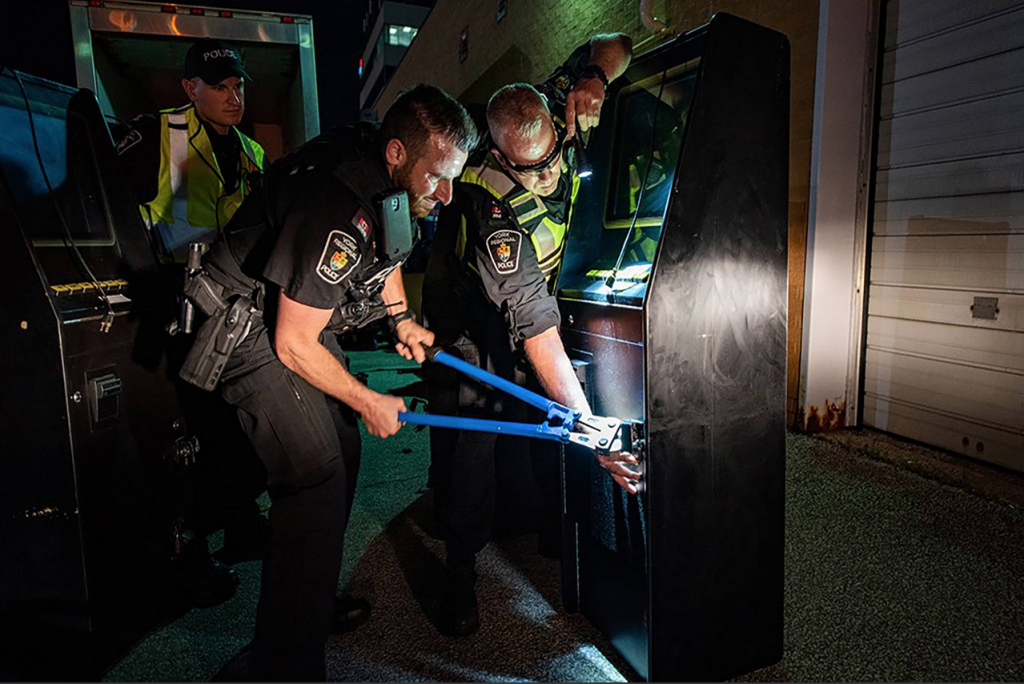
Officers on the investigation led by York Regional Police said they were unhappy that prosecutors decided to drop the case, given the large amount of evidence that was collected.
“This was an opportunity for the entire system to put its best foot forward and deal with a crime group in York Region that had an impact on public safety,” said Police Chief Jim MacSween. “And they walked out the back door unscathed.”
When contacted for comment, RBC acknowledged that the bank had been used for “unusual transactions” linked to the Figliomeni case.
“Our internal controls independently identified unusual transactions, relating to what police would eventually label Project Sindacato, and we worked closely with law enforcement throughout their investigation,” said RBC spokesperson Cheryl Brean.
Martino no longer worked at the bank at the time of his arrest, Brean wrote in an email. She declined to say whether he had been fired or had left on his own accord.
A TD spokesperson, Allyson Theriault, told reporters the bank “has cooperated with authorities on this matter,” referring to the Sindacato case. She declined to provide more detail.
“Actions were and continue to be taken, including with respect to current and former employees,” said Theriault.
Stay informed with The Namibian – your source for credible journalism. Get in-depth reporting and opinions for
only N$85 a month. Invest in journalism, invest in democracy –
Subscribe Now!



